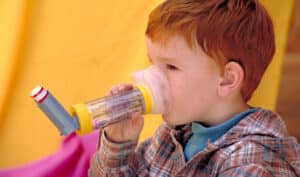
“It’s our polite nudge in the ribs to help you and your team stay organised and on task.”
This week’s subject is Administration of medication.
Element 2.1.2: Effective illness and injury management and hygiene practices are promoted and implemented.
When it comes to administration of medication in education and care services, it’s vital that educators and service staff follow strict procedures for both obtaining authorisation and for administrating the medication. Ensure that all staff are familiar with the medical conditions policy and administration of medication procedure by including all information in the staff induction pack/procedure and ensure that educators are aware of any children’s medical conditions and the location of their medical management plans.
When administering medication to children, educators must ensure that:
-
- A parent or person nominated for medication authority on the child’s enrolment record has completed the medication authorisation form. Ensure that all required detail has been submitted.
- The medication to be administered has been prescribed by a registered medical practitioner
- The medication is in the original container with the original label that details; the name of the child and instructions for administration of the medication
- The medication label has a use by/expiry date and the medication is being administered prior to the use by/expiry date
- The medication is administered in line with the instructions detailed in the label or written/verbal instructions provided by a medical practitioner
- A witness has checked that the correct dosage is being administered and to the correct child (excluding Family Day Care/ single staffed services).
- When administering paracetamol, the parent has given written authorisation on the child’s enrolment record and the parent or person nominated for medication authority on the child’s enrolment record has been contacted to provide verbal authorisation prior to administering paracetamol
Education and care services providing care to children over preschool age may allow children to self-administer their medication provided that:
-
- The service has a policy/procedure in place for self-administration of medication or the service’s policy and procedure for administration of medication includes provisions for self-administration of medication for children over preschool age
- A parent or person nominated for medication authority on the child’s enrolment record has adequately completed the medication record (r 92) which includes authorisation for the child to self-administer the medication
- Documentation for self-administration of medication must be completed by a staff member and witnessed
Resources:
Managing Children’s Medical Conditions in Early Childhood Services
Dealing with Medical Conditions-Policy guidelines
Within System7 go to Quality Area 2/Module 10 to submit self-assessment notes and if required, open a QIP issue if you identify any areas of improvement.
The Childcare Centre Desktop has a range of resources to assist services with medical conditions and administration of medication. These include Medical Conditions Policy, Administration of Medication Procedure, Administration of Medication Record, Medication Audit, Asthma Medication Expiry Form, Administration of Paracetamol Record, Diabetes Management Policy, Asthma Management Policy and much more.
Resources, NQS Element, Regulation and System7 links:
Childcare Centre Desktop – Childcare Centre Desktop
National Quality Standard – QA 2/ 2.1.2- Health practices and procedures
National Regulations – 92, 93, 94, 95, 96
System7 Module – QA 2/ Module 10
If you have any questions send us a note via the Contact page here!




